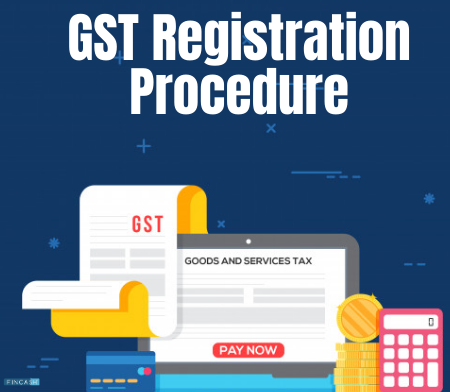Simplifying Your Singapore GST Registration: An Extensive Strategy
Simplifying Your Singapore GST Registration: An Extensive Strategy
Blog Article
The Ultimate Overview to Streamlining the GST Enrollment Refine and Needs for Small Company Owners

Comprehending GST Essentials
To grasp the fundamentals of the Item and Services Tax (GST) system, tiny service proprietors need to first understand its underlying concepts and effects. Under the GST program, businesses are required to accumulate and sign up tax on behalf of the government, making sure transparency and compliance.
Among the crucial concepts of GST is input tax debt, which permits companies to assert credit score for taxes paid on their acquisitions. This device avoids the cascading impact of taxes and promotes efficiency in the tax obligation system. Furthermore, GST is a destination-based tax, meaning that the tax obligation is levied at the factor of intake instead of the point of origin. This ensures reasonable circulation of tax income amongst states based on where the services or items are consumed. Recognizing these standard principles is crucial for small company owners to browse the intricacies of the GST system and ensure compliance with the regulation.
Eligibility Requirements for Registration
Having developed a foundational understanding of GST concepts, local business proprietors must now satisfy details qualification requirements to proceed with the registration process. In India, entities took part in the supply of goods or services with an annual accumulation turn over exceeding Rs. 40 lakhs (Rs. 10 lakhs for unique group states) are called for to sign up for GST. Additionally, particular services such as those associated with inter-state supply of goods, informal taxed persons, and those needed to pay tax under the reverse charge system need to register for GST regardless of their turn over. Services that were registered under the previous tax obligation routine (BARREL, solution tax obligation, and so on) are likewise mandated to sign up under GST. Farming businesses that only supply generate out of primary production are excluded from GST registration. It is important for business proprietors to thoroughly evaluate their eligibility based upon these requirements to make certain compliance with the legislation and avoid any type of charges for non-compliance.
Papers Required for GST Enrollment

Simplified Enrollment Process Steps
Adhering to the collection and verification of the requisite documents, the registration procedure navigate to this website for GST can be browsed with a collection of simplified actions developed to facilitate reliable compliance for local business proprietors. The very first step entails visiting the GST portal and choosing the 'New Registration' option. Consequently, the candidate has to fill in Component A of the GST REG-01 type with details such as PAN, mobile number, and email address to obtain an OTP for confirmation. When the OTP is received and entered, a Temporary Referral Number (TRN) is produced for further process. The next step requires submitting Component B of the form with necessary service details, uploading supporting files, and finishing the verification process making use of DSC or EVC. Upon effective verification, an Application Recommendation Number (ARN) is released, suggesting the conclusion of the GST registration procedure. By complying with these streamlined steps, small company proprietors can properly sign up for GST and make certain compliance with tax obligation guidelines.
Tips for Ensuring Conformity
To maintain regulatory adherence and functional integrity, thorough their explanation oversight and proactive measures are crucial in guaranteeing compliance with GST demands for small company owners. Small company proprietors should remain upgraded with GST policies, filing due dates, and any kind of modifications in tax prices to stay clear of fines and preserve an excellent standing with tax authorities. One necessary idea for compliance is to keep thorough and exact documents of all deals, consisting of invoices, costs, and invoices related to GST. Consistently integrating financial records with GST returns can help in identifying and correcting any type of disparities immediately. Furthermore, carrying out regular internal audits or seeking specialist aid can guarantee that business is adhering to all GST policies properly. It is also crucial for small company proprietors to buy GST-compliant accountancy software application that can enhance the tax obligation declaring process and minimize errors. Attending GST understanding workshops or training programs can improve understanding and conformity with GST policies, eventually benefiting the business in the long run.
Conclusion
To conclude, little organization owners need to comprehend the essentials of GST, meet the qualification requirements, gather essential records, and adhere to the streamlined enrollment process actions to ensure compliance. By simplifying the GST registration process and requirements, local business owners can stay clear of penalties and run their services smoothly within the legal framework Get the facts - Singapore GST Registration. It is vital for small company owners to stay enlightened and certified with GST policies to maintain an effective company procedure
Tiny company proprietors seeking GST enrollment must ensure they collect and submit the required files to complete the registration process successfully. The files required for GST registration generally consist of evidence of organization enrollment or incorporation, PAN (Irreversible Account Number) card of the organization entity, address and identity evidence of the promoters/partners/directors, pictures, address evidence of the location of company, financial institution account statements or canceled cheques, and authorization forms. Attending GST awareness workshops or training programs can improve understanding and compliance with GST laws, ultimately profiting the company in the long run.
By streamlining the GST registration process and requirements, little organization owners can stay clear of fines and operate their organizations efficiently within the legal framework. It is important for little business proprietors to stay certified and enlightened with GST guidelines to preserve a successful business procedure.
Report this page